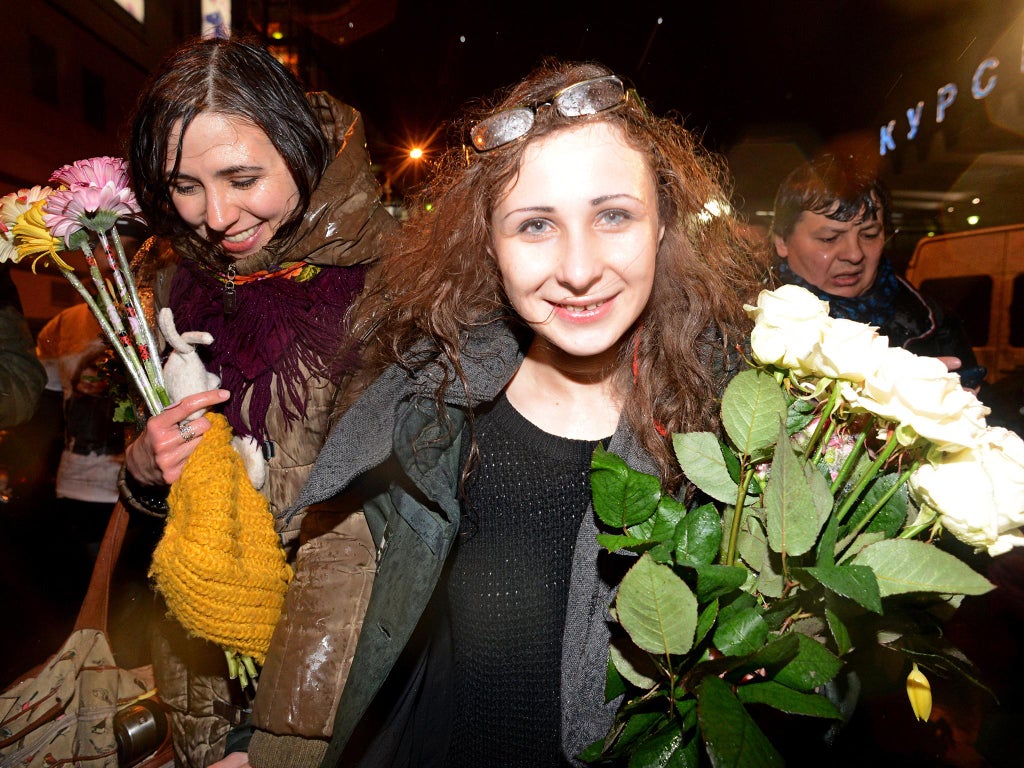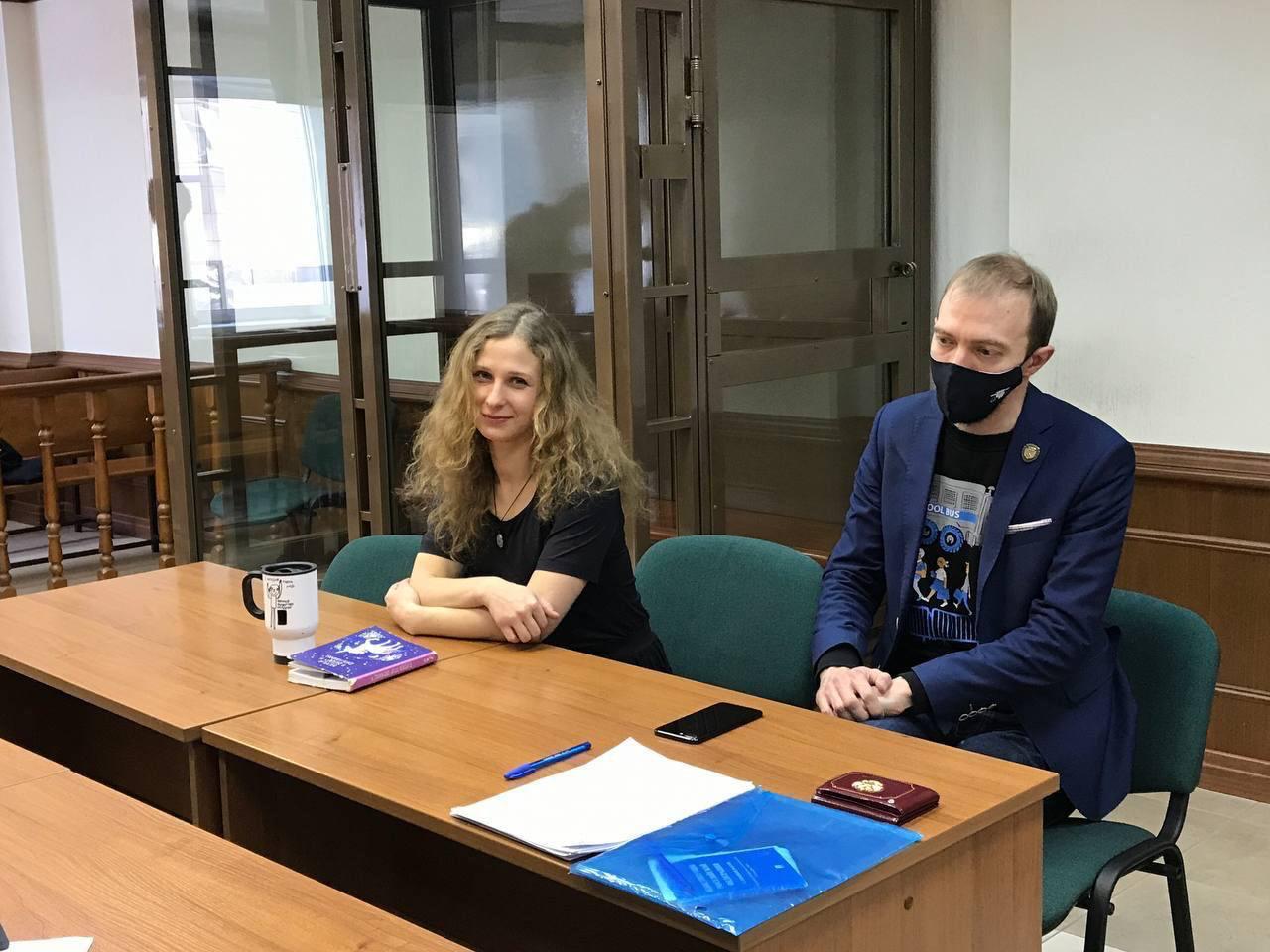
Activist and member of the Russian band Pussy Riot has fled the country disguised as a food courier after criticising Vladimir Putin’s regime.
Maria Alyokhina and her bandmates first came to the attention of Russian authorities in 2012 when they staged a protest inside Moscow Christ the Saviour Cathedral.
They were sentenced to two years in prison for”hooliganism” but the group continued to speak out against the repressive rule of President Putin.
After being released from prison she continued her activism and was in April placed on house arrest to crack down on protesters who were against Russia’s “special military operation” in Ukraine.
Ordered to spend 21 days in a penal colony, she managed to find a way to escape Moscow police, disguising herself as a food courier in the process.
The 33-year-old was then able to cross into Lithuania after seeking the help of an artist from Iceland who secured her travel documents.

“I was happy that I made it, because it was an unpredictable and big kiss-off to the Russian authorities,” Ms Alyokhina told The New York Times. “I still don't understand completely what I've done.”
Ms Alyokhina added: “I don't think Russia has a right to exist anymore. Even before, there were questions about how it is united, by what values it is united, and where it is going. But now I don't think that is a question anymore.”
When Ms Alyokhina arrived at the Belarus-Lithuania border, she found that she had been placed on a Russian “wanted” list, and was refused entry on account of her Russian passport having been confiscated by authorities.

Ms Alyokhina said she was eventually let through on her third try as she had friends outside the country helping her, including Icelandic performance artist Ragnar Kjartansson.
The New York Times said new members of Pussy Riot were arriving in Vilnius, Lithuania’s capital, every day as they fled Russia and tried to join the others for the group’s European tour.
Ms Alyokhina told the outlet that she still hoped to return to Russia one day, but didn’t know when that would be as activists are being imprisoned or forced into exile for protesting against the Russian government.
“They are scared because they cannot control us,” Ms Alyokhina said.







